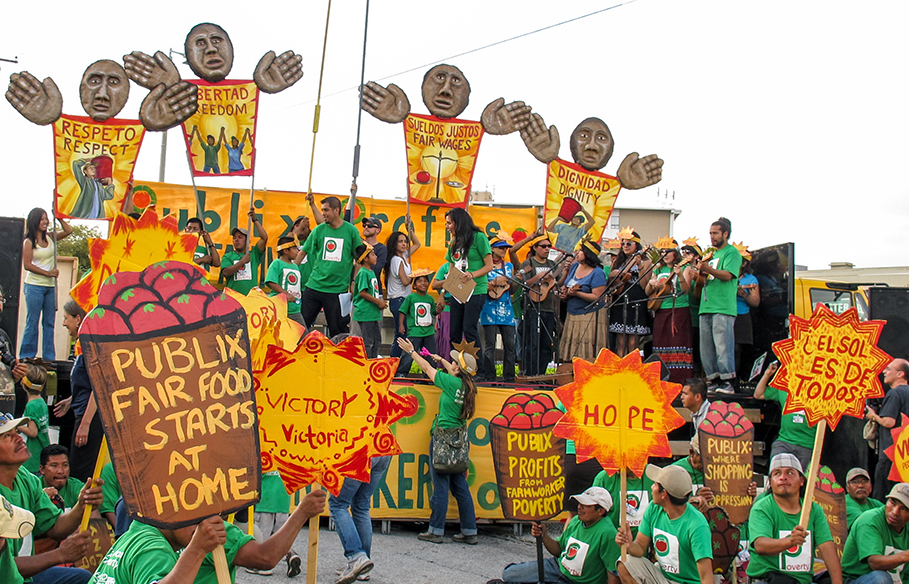Publix Campaign
Publix: End the Poverty
For nearly a decade, Publix Supermarkets has refused to join the Fair Food Program. As one of the largest supermarket corporations in the country and the 7th largest privately-owned corporation in the U.S., Publix’s purchasing power could significantly strengthen the historic changes in U.S. agriculture brought about by the Fair Food Program. Yet Florida’s hometown grocer refuses to take responsibility for conditions impacting their farmworker neighbors -- those who make Publix’s record profits possible. Publix’s response to atrocities in its supply chain, including modern-day slavery, has been, “if there are some atrocities going on, it’s not our business” (Publix spokesperson Dwaine Stevens, 12/11/10).
By refusing to participate in the Fair Food Program, Publix provides a market for growers with widely-documented human rights violations. In 2016, the Department of Labor fined a top Publix tomato supplier $1.4 million after a two-year federal investigation uncovered extensive abuses in its operations. The supplier, Red Diamond Farms, had previously rejected an invitation to join the Fair Food Program. Instead of creating opportunities for exploitation, Publix should join its retailer peers, including Walmart and Whole Foods, in demanding human rights from suppliers.
Take action
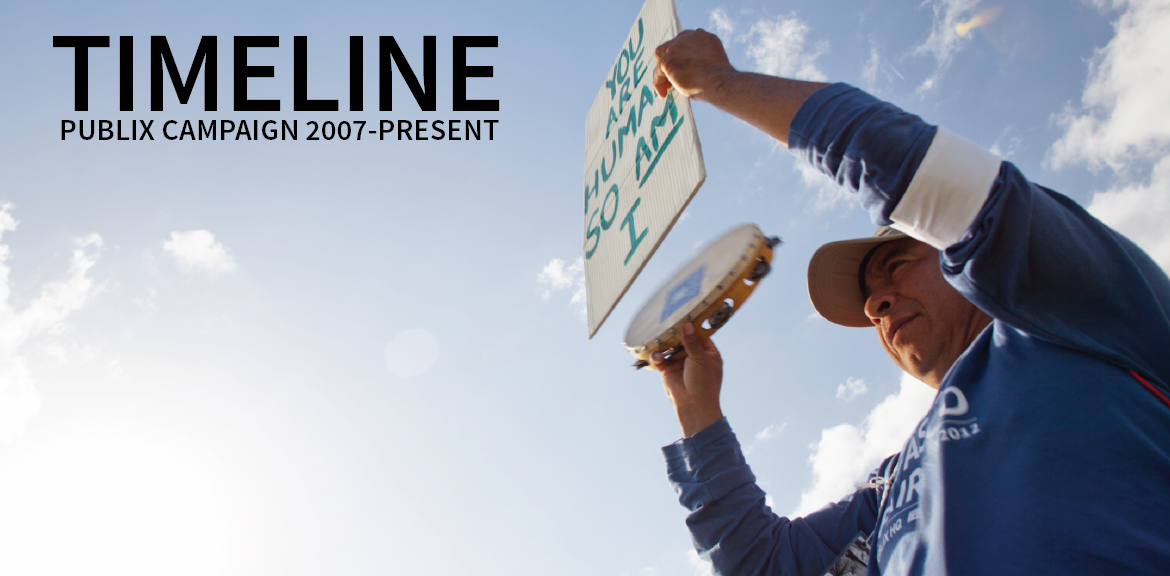
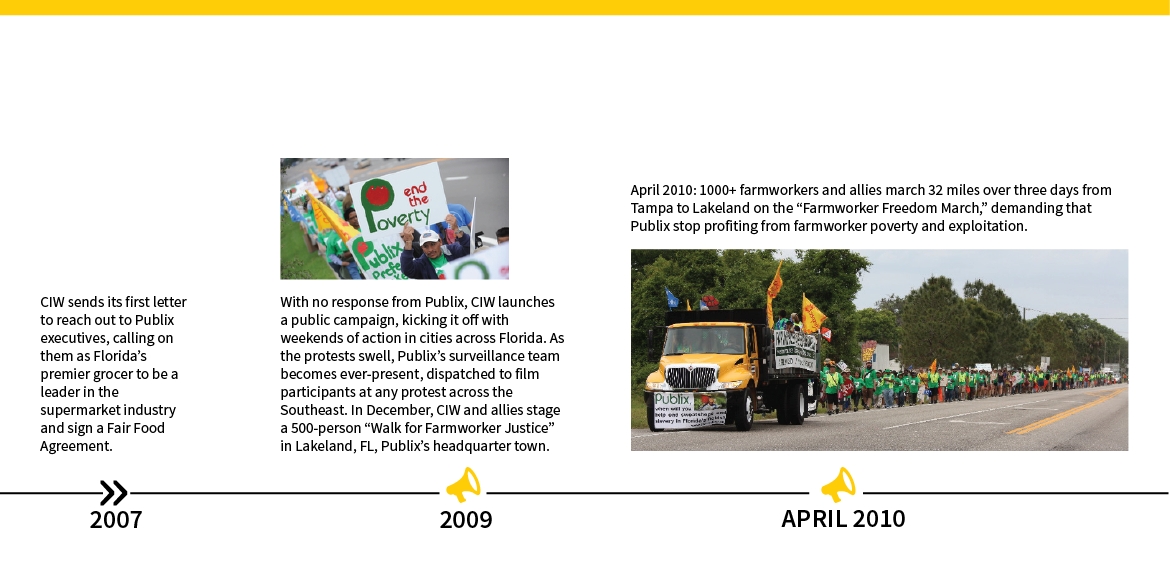
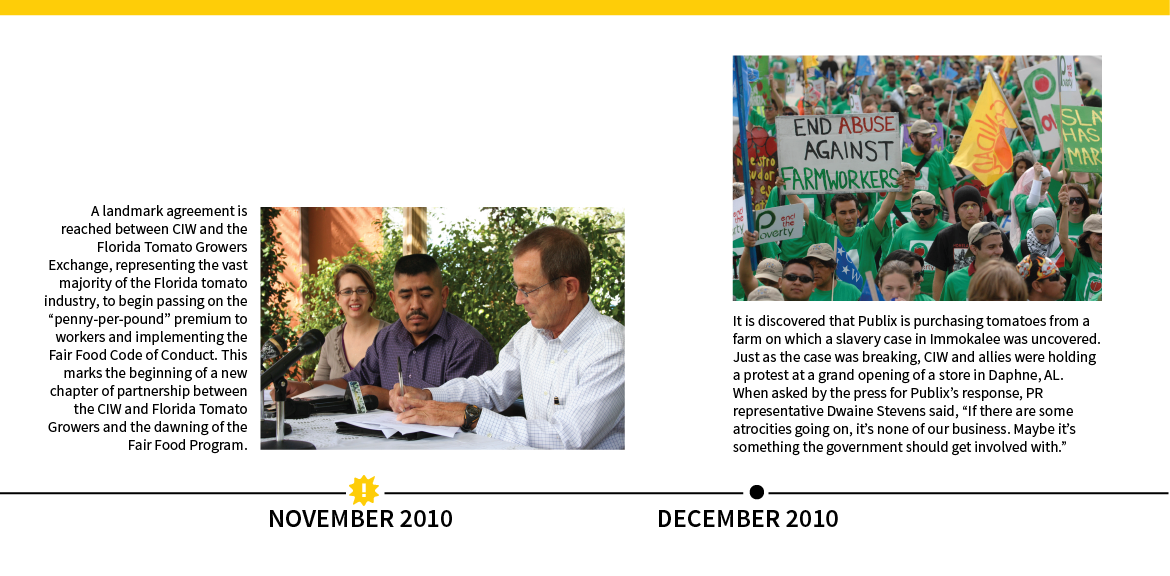

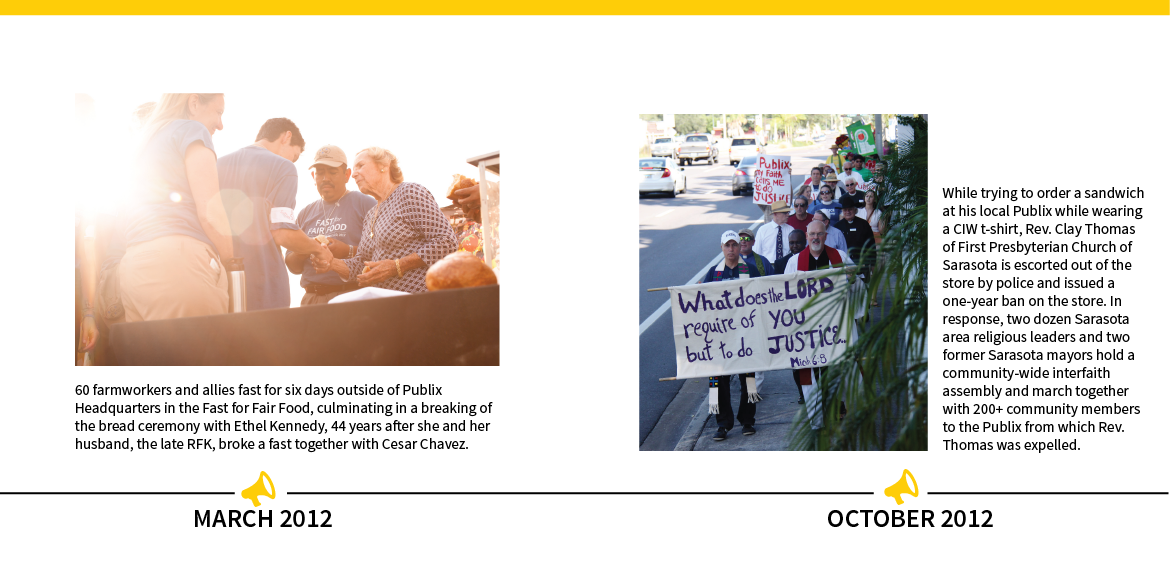
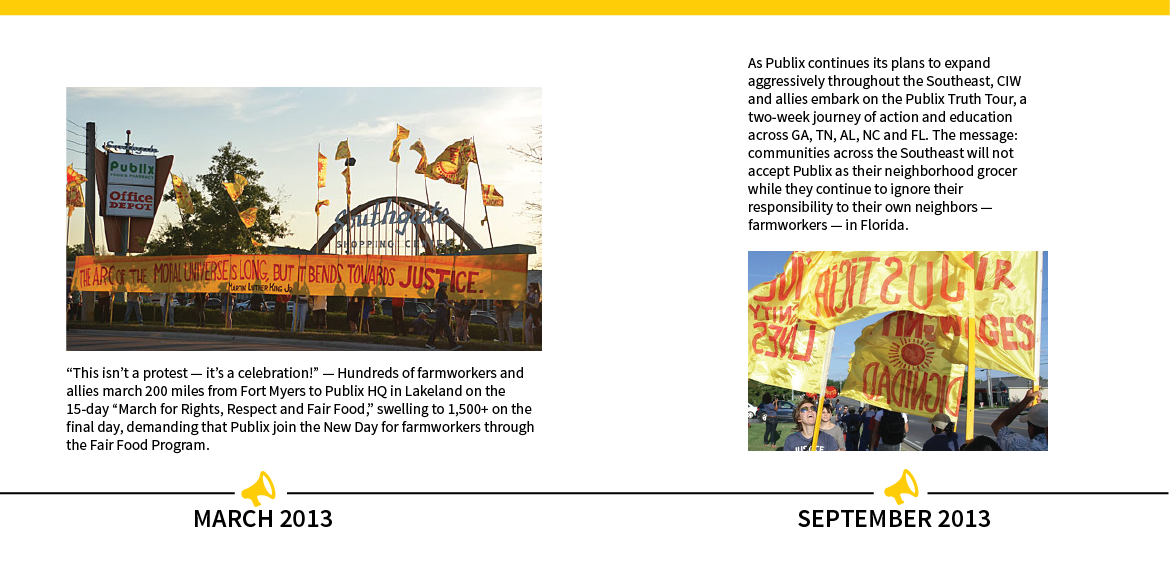
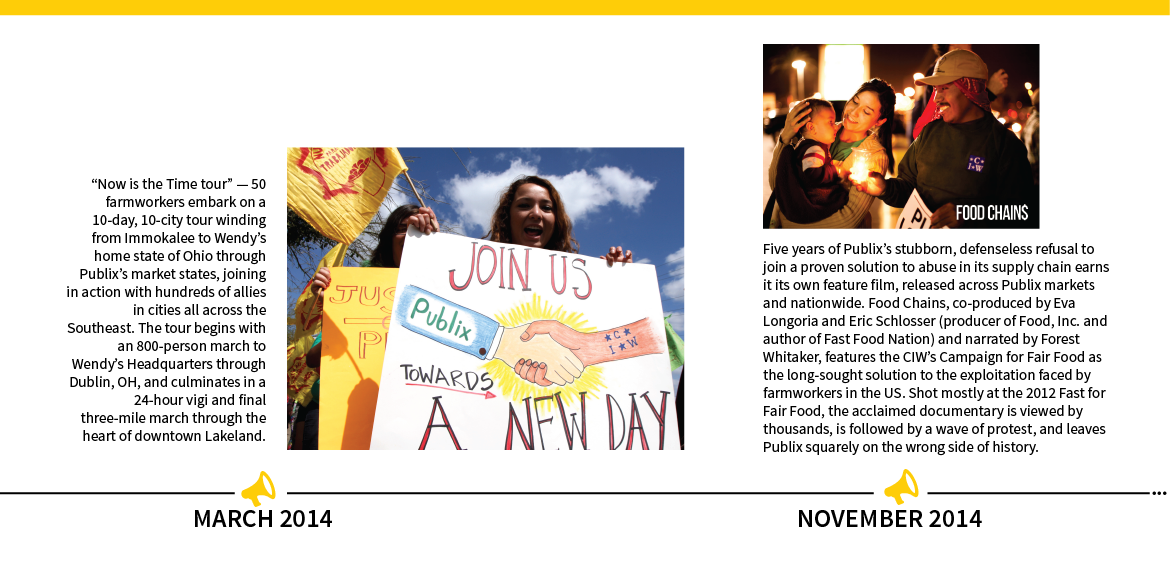
Why does Publix reject the Fair Food Program?
Publix calls the growing Fair Food collaboration among buyers, tomato growers and farmworkers "a labor dispute" and says the company will not get involved in the labor disputes of its suppliers.
The Fair Food Program is in fact the first large-scale partnership of its kind for real, lasting social accountability in the U.S. produce industry. For example, the Fair Food Code of Conduct and the manual prepared to assist growers in implementing the Code on their farms were developed in close collaboration among workers, growers, and buyers. Further, growers across the state of Florida welcome education teams from the CIW on their farms to help workers learn, on the clock, about their new rights under the Code. In this way, workers are empowered to help identify and address abusive bosses, dangerous practices, and other threats to the industry as a whole. Far from a labor dispute, the Fair Food Program is a vital and growing partnership - unless Publix would label any process in which workers have a voice a “labor dispute.”
Publix says that the penny should be “put in the price” the industry charges for tomatoes.
According to Publix’s public relations department, the company is not opposed to paying a fairer price for its Florida tomatoes, it just doesn’t like the way the Fair Food Program implements the premium that goes to increase farmworkers’ wages. Publix says that if the penny-per-pound were put in the price of the tomatoes it buys, it would be happy to pay. But, that is precisely how the Fair Food Program works. The Fair Food Premium is put into the price charged to Walmart, for example, by its suppliers, who then back the premium out and pass it on to their workers as a line item bonus on their weekly paychecks, a process tracked and audited by the Fair Food Standards Council, the independent organization that oversees the Fair Food Program.
Publix says: “Our supplier partners have been carefully selected because they are of the highest integrity. They treat their employees and communities with dignity and respect and uphold the highest standards of product safety, agricultural knowledge and professionalism. We know them well, we trust them to do the right thing for their workers, communities and products. And we require and expect full compliance with all applicable labor laws.”
The integrity of Publix’s suppliers and the question of if they treat their employees and communities with dignity and respect cannot be assured without them joining the most comprehensive, verifiable, and sustainable social responsibility program in U.S. agriculture. The 2016 Department of Labor Case concerning Red Diamond Farms is a clear example. The Fair Food Program has advanced, innovative standards and rigorous enforcement mechanisms that current laws — which are sparse, and go largely unenforced — lack. If Publix truly expects their suppliers to treat their workers with respect and requires compliance with all labor laws, they must join the Fair Food Program to ensure that farmworkers’ basic human rights are upheld.


